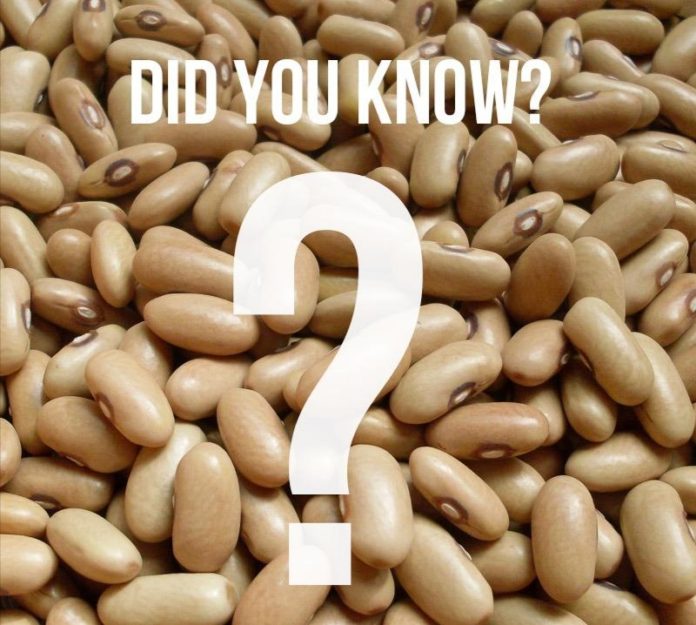Beans are the seeds from flowering plants in the Fabaceae family and are classified as legumes.
Several beans grow in pods or capsules that develop from flowers. Other legumes include peas, peanuts, and lentils. These beans are available to dry, canned, or frozen.
They differ nutritionally from green beans or wax beans where a person eats the entire pod.
Beans contain amino acids, which are the protein building blocks that the body uses to heal and to make new tissues, such as bone, muscle, hair, skin, and blood. Protein is an essential nutrient.
There are many types of beans. Dried beans need cooking to make them tender enough to eat. Canned and frozen beans are typically ready to eat after warming on the stove or in the microwave. Some of the most popular bean varieties include:
Lima beans
Black beans
Black-eyed peas
Soybeans
Kidney beans
Garbanzo beans
Navy beans
Pinto beans
Red beans
Health benefits of beans
Beans offer several health benefits.
Protein
Protein is a vital nutrient that plays a key role in maintaining and repairing the body. Beans are high in amino acids, the building blocks of protein.
There are 20 amino acidsTrusted Source, and nine of these are essential. There are also two types of protein sources: complete and incomplete.
Animal products, soy, and quinoa are all complete proteins, which means they contain all nine essential amino acids.
However, of all the types of beans, only soybeans contain all nine amino acids.
People can combine incomplete proteins with nuts, seeds, dairy products, or grains at a single meal or throughout the day to make complete proteins.
For example, a person can:
Eat beans with rice or couscous for lunch
Have black beans at lunch with almonds or cheese
Beans make an excellent source of protein for vegetarians and vegans.
They are also lower in calories and saturated fat than some other protein sources, such as meat and full fat or low-fat dairy products.
Examples of the protein content of beans are:
A 1-cup or 40 grams Trusted Source (g), serving of canned black beans provides 14.5 g of protein, 16.6 g of fiber, and 4.56 milligrams (mg) of iron.
A 1-cup or 155 g Trusted Source, serving of shelled edamame beans provides 18.5 g protein, 8.06 g fiber, and 3.52 mg iron.
Folate
Beans contain several vital nutrients, including folate. Folate is essential for overall health, to make healthy red blood cells, and help prevent neural tube defects in a fetus during pregnancy.
A 1-cup, or 155gTrusted Source, serving of shelled edamame beans provides 482 micrograms (mcg) of folate.
Antioxidants
According to research Trusted Source, beans are rich in polyphenols, which are a type of antioxidant.
Antioxidants fight the effects Trusted Source of free radicals, which are damaging chemicals that the body produces during metabolism and other processes.
Free radicals can cause cell damage that can result in various diseases. Antioxidants help the body remove free radicals. In this way, antioxidant-rich foods, such as beans, can help protect the body from disease.
Heart health
People who consume beans regularly may be less likely to die of a heart attack or other cardiovascular problems. The authors of a 2017 meta-analysis Trusted Source suggested that one reason for the decrease in cardiovascular risk was that people had replaced higher fat animal meat proteins with beans.
A 2013 review and meta-analysis found a clear correlation between eating beans and a lower risk of coronary heart disease.
Other research suggests that nutrients in beans may help lower cholesterol. High cholesterol is a risk factor for heart disease and heart attacks.
There is evidence Trusted Source that a high-fiber diet may help reduce the risk of cardiovascular disease. A half-cup or 88 g Trusted Source, serving of black beans provides about 14 g of fiber, which is over half an adult’s daily requirement for fiber.
Reduced risk of cancer
Some studies have shown that beans act as antioxidants and anti-inflammatory agents. These effects could reduce the risk of cancer.
Research published in 2015 analyzed whether beans might have antioxidant properties that fight intestinal cancer. The results suggested that black beans had the highest antioxidant activity.
A 2016 study also found that chemicals in Northeast China black beans could slow the growth of colorectal cancer by preventing cancer cells from multiplying.
Diabetes and glucose metabolism
Beans may help stabilize Trusted Source blood glucose levels or even prevent diabetes. Beans are high in fiber, which can help lower blood glucose.
The author of a 2018 review Trusted Source concluded that consuming a high fiber diet could reduce the risk of type 2 diabetes. There was also evidence that it may help lower blood sugar in people who already have the condition.
Another study Trusted Source looked specifically at the effect of adding a cup of legumes to the daily diet of people with type 2 diabetes. This study showed a reduction in blood sugar levels and lower blood pressures in the group who ate beans over the control group who included more whole wheat fiber.
Preventing fatty liver
Fatty liver happens when fats accumulate in the liver. It can develop alongside obesity, high cholesterol, high blood pressure, and other aspects of metabolic syndrome.https://www.nhs.uk/conditions/non-alcoholic-fatty-liver-disease.
Doctors base the treatment of fatty liver disease on weight loss and controlling blood sugars, as well as reducing blood levels of fats, such as triglycerides and low-density lipoprotein (LDL), or bad cholesterol. Replacing higher fat animal proteins with beans is a good step towards better liver health.
Controlling appetite
When a person eats beans, the fiber and healthful starches they contain can help create a feeling of fullness and satisfaction.
As a long-term dietary strategy, this could help prevent overeating and may lead to weight loss, according to a 2013 review Trusted Source.
Improving gut health
Research Trusted Source has shown a variety of beans, especially black beans, enhance gut health by improving intestinal barrier function and increasing the number of beneficial bacteria. This may help prevent gut-associated diseases.
Healthful gut bacteria also support immune system function and may promote weight loss. Beans feed the healthful gut bacteria colonies.








